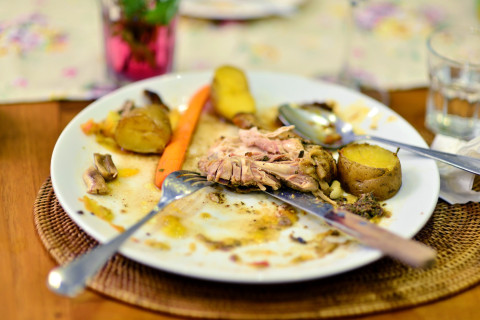Social media is often blamed for creating all kinds of pressure. However, not all social media pressures are necessarily bad, as they can encourage us to behave in a manner that is more sustainable than before.
In tourism, social media has traditionally been used as a tool for marketing, but it can also influence our consumer behaviour and to nudge us in the direction of increasingly sustainable choices. Researchers at the University of Eastern Finland and the University of Southern California have analysed the role of social media in the reduction of food waste in tourism. This line of research is a fresh opening and a much needed one, considering that food waste has been identified as the most prominent type of hospitality waste.
“Social media is a powerful tool and it defines many of our social norms. Things that are trending on social media influence the way we behave as consumers,” Research Manager Juho Pesonen from the University of Eastern Finland says.
From flight shame to waste shame
Sweden made the headlines earlier this year, following a plummet in the country’s air passenger numbers. We also witnessed social media campaigns exposing celebrities who, despite climate change, had the nerve and audacity to travel by air. Flight shame as a phenomenon and as a term was born. According to Pesonen, something similar could also emerge around food waste.
“Food plays a tremendous role on social media. It is no longer something that people eat to ease their hunger; instead, it has become part of lifestyle. Instagram, for example, is filled with hashtags relating to foodporn. When a topic gains much visibility, it is also possible to influence attitudes relating to it,” Pesonen notes.
In other words, there could be a shift from overwhelming abundance and plentiful buffets towards a more conscious attitude and sustainability.
“We need more research in order to understand different mechanisms of influence and different influencer roles on social media,” Pesonen explains.
Digitalisation can prevent food from ending up in landfills
Digitalisation has made it easier for restaurants to predict the amount of food they will sell on a given day. Should food waste nevertheless be created, it no longer automatically goes to waste and ends up in a landfill. Instead, it can end up to consumers, thanks to a variety of apps designed to tackle food waste. One example is the Finnish ResQ Club, via which restaurants can sell their leftover portions to consumers at an affordable price.
“The worst-case scenario is when food waste ends up in a landfill. It is also in the interest of companies to fight food waste: they save money and gain competitive edge that is valued by their customers. In fact, companies can build their entire business around reducing food waste, which is something the zero-waste restaurant Nolla in Helsinki has done in an exemplary fashion,” Pesonen notes.
Holiday mood, no cares in the world?
We humans undergo a change when we switch to holiday mood. According to Pesonen, research shows that when we are on holiday, our attitudes tend to remain unchanged, but this doesn’t necessarily translate into our behaviour.
“Holiday has a profound meaning for people living in the Western world. It’s an escape from the mundane: for a little while, people want to enjoy the good life. Many have no cares in the world, and sometimes we forget about the things that are important to us in our everyday life. From the viewpoint of food waste, this is an interesting phenomenon: we are keen to find out to what extent rigorous waste sorters and recyclers keep up their habit also while on holiday,” Pesonen explains.
The phenomenon is interesting also when looked at from the viewpoint of food waste in tourism, since the tourism industry has become increasingly diverse. Indeed, today’s tourism is not limited to package travel and hotel stays, thanks to the emergence of alternatives such as camping, couch surfing, AirBnB, staying at friends’ and relatives’ homes or travelling across the country in a recreational vehicle, for example. Food waste is created in all these tourist households, but very little research into the topic has been carried out so far. Yet, there is a need to mitigate food waste from these sources as well.
“It may well be that compared to traditional hotels and restaurants, these other tourist households are effective in reducing their food waste, but very little research into the matter exists,” Pesonen says.
Responsibility and sustainability have long been significant trends in tourism. Consumers are keen to know whether restaurants use local ingredients and whether services are locally produced.
“This is also a cycle that feeds itself. The brand of tourism is increasingly green and responsible, which makes people less worried about sustainability. This, in turn, could lead to the growth of tourism,” Pesonen concludes.
